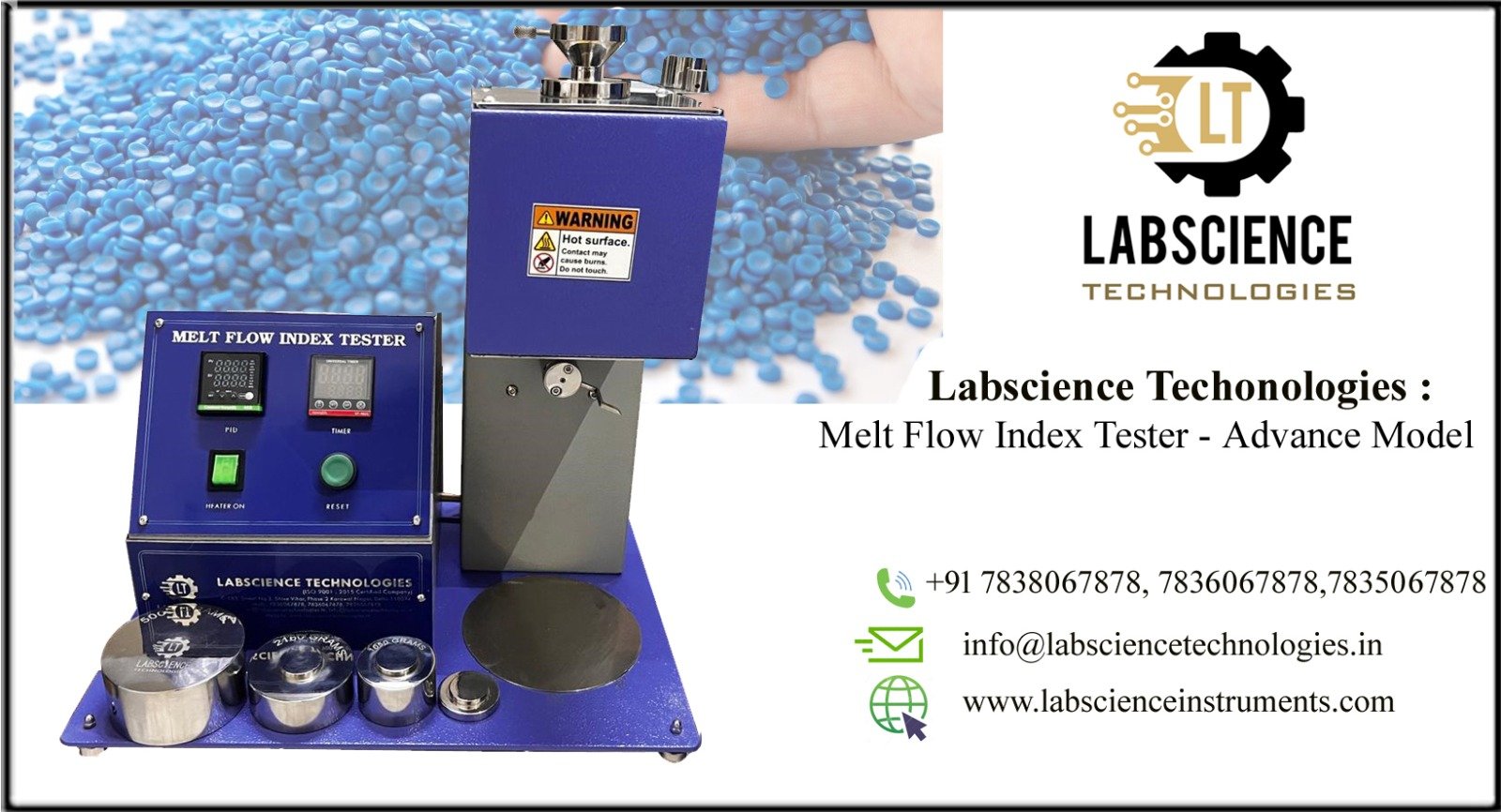Melt Flow Index Testing: Ensuring Polymer Quality and Performance
Melt flow index testing is a vital method used to measure the flow properties of thermoplastic materials. Manufacturers rely on this test to ensure their polymers meet specific standards for processability, quality, and performance. Using an MFI tester for polymers, engineers determine how easily a polymer flows under controlled temperature and pressure conditions, making this test a cornerstone in plastic and polymer industries.
There are two primary international standards used for melt flow index testing: the ASTM D1238 melt flow index and the ISO 1133 melt flow test. These guidelines ensure that the testing procedure is consistent, reliable, and widely accepted across industries. Both standards outline the necessary conditions for testing thermoplastics and are used for various polymers, including polyethylene, polypropylene, and ABS. The melt flow rate tester measures the polymer’s flow through a die under a specific load, generating the polymer melt flow rate, which is essential for understanding the material’s performance during production.
One key aspect of melt flow index testing is its relevance to thermoplastic melt flow index, where the flow rate of a material determines its suitability for particular manufacturing processes. Materials with a high melt flow index are better for applications like injection molding, where faster processing is required. Conversely, polymers with a lower flow index are often used in extrusion processes, where a slower flow ensures better structural integrity. This is why melt flow test for extrusion is crucial in applications like film manufacturing and pipe production.
Modern melt flow index equipment comes in various forms, including the highly reliable PCE Instruments melt flow index tester. These machines can perform both manual and automated melt flow tests, with automated systems offering enhanced precision and repeatability. For materials requiring extreme processing conditions, a high-temperature melt flow test is used to ensure that the polymer will perform as expected in high-heat applications such as automotive parts or aerospace components.
In industries like packaging and medical devices, plastic melt flow analysis is essential for determining how well a polymer will perform in the final product. By conducting this analysis, manufacturers can assess the flow behavior of polymers and make necessary adjustments to their production processes. This is particularly important in MFI for injection molding, where understanding the polymer’s flow characteristics helps optimize mold design and machine settings for improved product quality.
A well-executed polymer quality control MFI program relies on accurate measurements from melt index test equipment. These tools ensure that manufacturers consistently produce high-quality products that meet regulatory requirements. Polymer viscosity testing is also an essential part of this process, as it helps determine how a polymer behaves when subjected to different processing conditions. Advanced melt flow measurement tools provide critical data for evaluating plastic material flow properties, allowing engineers to fine-tune production processes and reduce material waste.
In conclusion, melt flow index testing is a fundamental practice for ensuring the quality and performance of thermoplastic materials. By following standards like the ASTM D1238 and ISO 1133 tests, using modern melt flow index equipment, and performing thorough plastic melt flow analysis, manufacturers can produce high-quality, consistent products that meet both industry and customer expectations.
Kindly fill this form to demand a call-back to from our client support boss with esteeming and details.
+91 7838067878
Call Now
+91 7838067878

